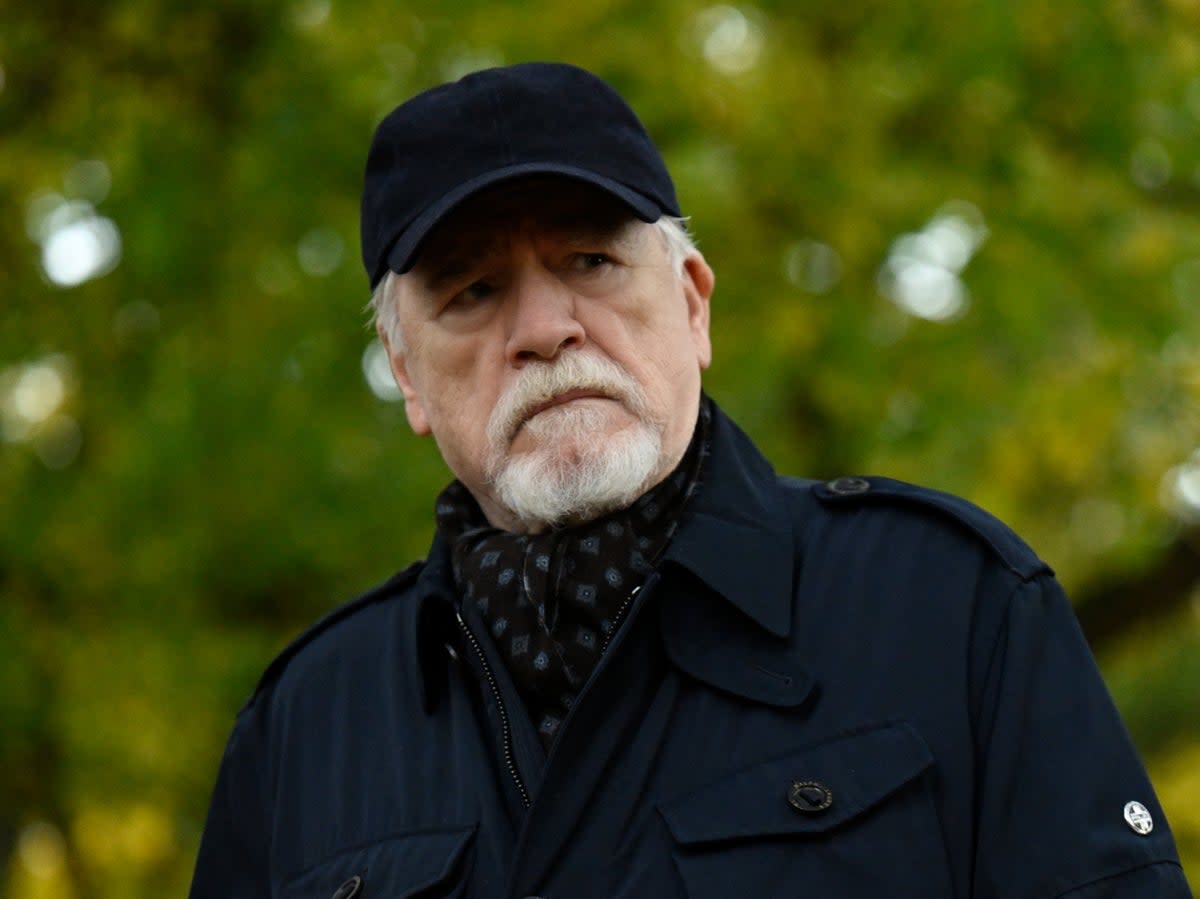Succession season four review: With marriage turmoil at its heart, the show guarantees its place in TV history

- Oops!Something went wrong.Please try again later.
- Oops!Something went wrong.Please try again later.
- Oops!Something went wrong.Please try again later.
“If you are sure you understand everything that is going on,” states the adage known as Mondale’s law, “you are hopelessly confused.” The saying was named for Walter Mondale, former US President Jimmy Carter’s deputy in the White House. His name was also, fittingly, given to the long-forgotten dog shared by Shiv (Sarah Snook) and Tom (Matthew Macfadyen) in Sky Atlantic’s blockbuster drama Succession. Now, as the show returns for its final series, that pooch finds himself at the centre of a crumbling relationship, and hopeless confusion reigns. Walter Mondale would surely approve.
At the end of the third season, WayStar Royco CEO and family patriarch Logan (Brian Cox) had just, in the show’s own parlance, screwed his kids. As the concluding chapter of this tetralogy picks up, Kendall (Jeremy Strong), Roman (Kieran Culkin) and, newly semi-single, Shiv are teaming up on a new venture. But will the lure of return-screwing dad prove too strong? And what game is Tom playing, exiled in New York to a lonely life where he does his father-in-law’s bidding, cavorts with cousin Greg (Nicholas Braun) as “the disgusting brothers”, and watches as Mondale forgets the scent of his wife?
All this marks the moment that the show’s creator, Jesse Armstrong, has been building towards. With its dynastic troubles and intense, almost lyrical, dialogue, Succession is often tritely observed as a sort-of modern-day Shakespearean drama, and we are now in the final act of King Lear. Except, of course, Logan is a remorseless force of nature. “I’m not gonna sit like a c***,” he seethes over a deal with Nan Pierce (Cherry Jones), “waiting for that old crone.” From this central, malevolent energy, the Roy children rotate like untethered satellites: Kendall still searching for meaning (“I need something super f***ing absorbing in my life”) and Roman for purpose (Clickbait,” he says of a business idea, “but for, like, smart people”).
And then there’s Shiv. I seclude Shiv in her own paragraph because the greatest weakness of Succession has always been that Mondalian confusion; the sense that so much is happening simultaneously, the humanity struggles to cut through. But with Logan’s marriage to Marcia seemingly ended (off-screen, like Old Yeller), it is the disintegration of the youngest Roy sibling’s marriage that takes centre stage. In the bearpit of the business world, she mirrors her father’s snarling indignation (“The kid from St Paul has really made it,” she hisses at her husband), but, in private, both she and Tom are near the point of emotional collapse. “Do you really want to get into a full accounting of all the pain in our marriage?” Tom asks her, close to tears.
Macfadyen’s performance as Tom Wambsgans is, for my money, one of the best ever committed to television, and the standout in a show of uniformly superb acting. Bitter and brittle, the braggadocio quickly gives way to something broken. It is the dramatic heart of the show: while Strong and Culkin spit vulgar corporate aphorisms like Howard Stern reading LinkedIn posts, Macfadyen and Snook provide the necessary emotional counterbalance. Add to that the perfectly pitched comedy of Braun and Alan Ruck’s eldest brother Connor (yes, he’s still running for president, and polling at one per cent) and the ensemble moves like a well-oiled Bentley.
The precise machinations of the financial manoeuvrings might require a Harvard Business School MBA to fully understand – a perfect recipe for hopeless confusion – but all you really need to be caught up on is the stakes. The endgame of the internecine Roy family war will pit father against children, husband against wife, all in the service of the monster that is, not capitalism, but respect. Kendall’s desire to be respected by his dad, Tom’s need to be respected by his partner, Greg’s ambition to be respected by, well, anyone. It may not have the pathos of Lear weeping over the hanged body of his fool, but it’s still entirely satisfying as a human drama.
And with this injection of interpersonal empathy, Succession manages to guarantee its place in the history of television. You can keep your zombies, your football managers, your deadly hotel resorts: Succession is back and, like its protagonists, is up for the fight of reclaiming its crown as the best thing on TV. And if the Roy saga thus far has taught us one thing, it’s that we shouldn’t bet against a winner.

